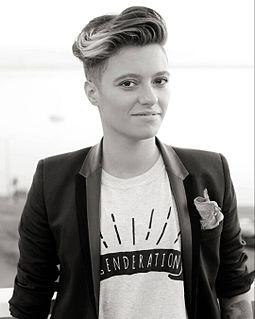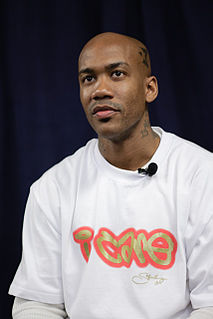A Quote by Dominique Crenn
Food is politics. You know, we have one planet. And growing food is, you're using the soil of the planet.
Related Quotes
We’re turning everything on the planet into food for humans so we’re cutting down the rainforests, displacing all of the animals, and we’re doing all this to feed humans... ... Imagine if there were only 2 billion people polluting? We’re already overpopulated. I feel we’ve become a parasite on this planet. If this population keeps growing, we’ll just keep devouring the planet, and I don’t think it’s going to stand for that very long.
Forests ... are in fact the world's air-conditioning system-the very lungs of the planet-and help to store the largest body of freshwater on the planet ... essential to produce food for our planet's growing population. The rainforests of the world also provide the livelihoods of more than a billion of the poorest people on this Earth... In simple terms, the rainforests, which encircle the world, are our very life-support system-and we are on the verge of switching it off.
If there was ever a food that had politics behind it, it is soul food. Soul food became a symbol of the black power movement in the late 1960s. Chef Marcus Samuelsson, with his soul food restaurant Red Rooster in Harlem, is very clear about what soul food represents. It is a food of memory, a food of labor.
We are living as if we had three planets' worth of resources to live with rather than just one. We need to cut by about two-thirds our ecological footprint. For that we need one planet farming as well as one planet living - one planet farming which minimises the impact on the environment of food production and consumption, and which maximises its contribution to renewal of the natural environment







































